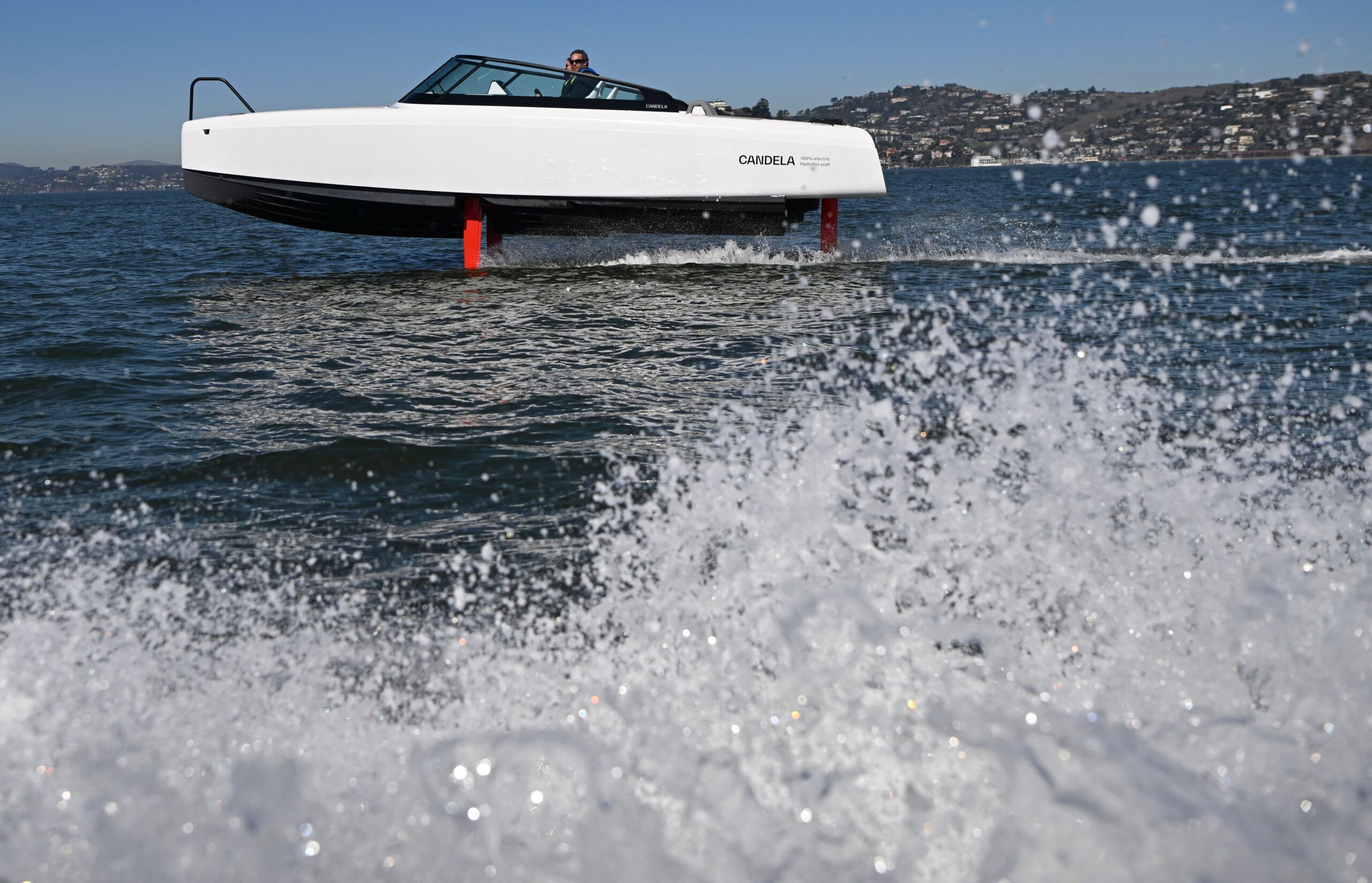
By The newspaper
Nov 28, 2023, 00:42 AM EST
In a historic step towards sustainable water transportation, Sweden has successfully tested the world’s first fully electric hydrofoil passenger boat, the Candela P-12.
Breaking records with a speed of 30 knots and an extraordinary range of 50 nautical miles, this hydrofoil marvel is destined to revolutionize the way we navigate the waterways.
What sets the Candela P-12 apart is its ingenious use of hydrofoils: wing-like structures under the hull that lift the boat above the water, reducing drag and improving speed.
This eco-friendly boat boasts a staggering 80 percent reduction in energy consumption compared to conventional boats at high speeds. The magic happens when hydrofoils glide gracefully, providing a smooth, energy-efficient ride.
Intelligent stabilization: a pioneering feat
Equipped with sensors and a sophisticated computer system, the P-12’s hydrofoils aren’t just about speed; They ensure stability. By measuring wave height and wind speed, the ship’s hydrofoils actively stabilize the ship.
This results in an extraordinary 90 percent reduction in G-force, offering passengers a comfortable ride even in adverse weather conditions.
The P-12 comes in two different models, satisfying various preferences. The Shuttle, with capacity for 30 passengers, bicycles and strollers, is priced at more than $1.8 million.
This makes it comparable in cost to traditional combustion engine boats and dwarfs other renewable options. For those looking for a more luxurious experience, the Business model features premium seating for 12 to 20 passengers and luggage space.
While Candela has previously focused on pleasure craft for private clients, the P-12 marks the company’s ambitious foray into commercial vessels. Gustav Hasselskog, CEO of Candela Technology, mentions in a press release that the P-12 will serve a wide clientele, from public transport fleets to VIP services and private clients.
Green roads for Stockholm: a local vision
Sweden’s capital Stockholm, characterized by its intricate network of islands, sees potential in water transport to relieve congestion. If the pilot plan goes as planned, Candela aims to integrate the P-12 ferry into Stockholm’s public transport network by 2024.
This move aligns with the city’s commitment to use its waterways as green highways, unlocking fast connections within the city.
Shipping currently contributes 3 percent of global carbon emissions, a figure that is projected to rise to 13 percent in the coming decades without intervention.
The Candela P-12 is a crucial step in the right direction, joining the growing trend of electric boats. As the world faces the need for green transportation, Sweden’s innovation paves the way for a more sustainable future on the seas.
Keep reading:
· The secret of the success of the Chinese electric car manufacturer that already produces more than Tesla
· The cruise that promised to travel around the world in 3 years suffered an unexpected end
· SpaceX loses contact with the Starship rocket in a second attempt to launch it into space
